As told to Osman Ahmed.
The first I remember of Karl Lagerfeld is his shows for Chloé in the early 1970s. The shows used to be in a restaurant at the bottom end of the Champs Élysées, quite close to where Pierre Cardin’s got his theatre. It was difficult thing to cover because there was difficulty getting in. I remember I used to sneak in through a window.
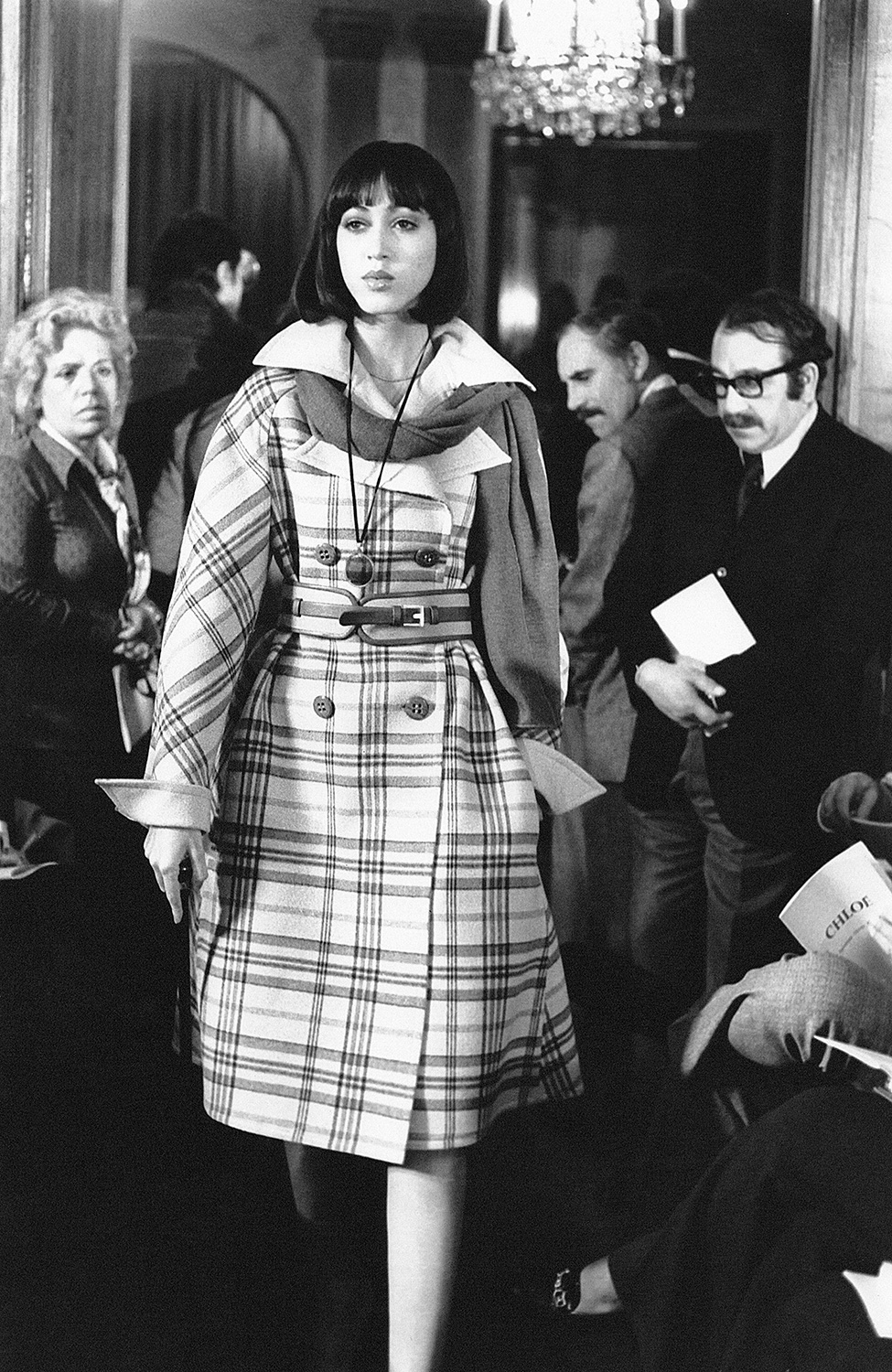
In those days, we didn’t have proper invitations and we had to blag our way in. The PRs were overwhelmed by the sheer interest suddenly. With Chloé it was the early days of ready-to-wear and we hadn’t previously been able to photograph the couture shows and suddenly there were fashion shows that we could get into and take photos of. I can remember one show I couldn’t get into, so I turned my back to the guards and walked in backwards, bottom first. It gave it all a level of excitement.
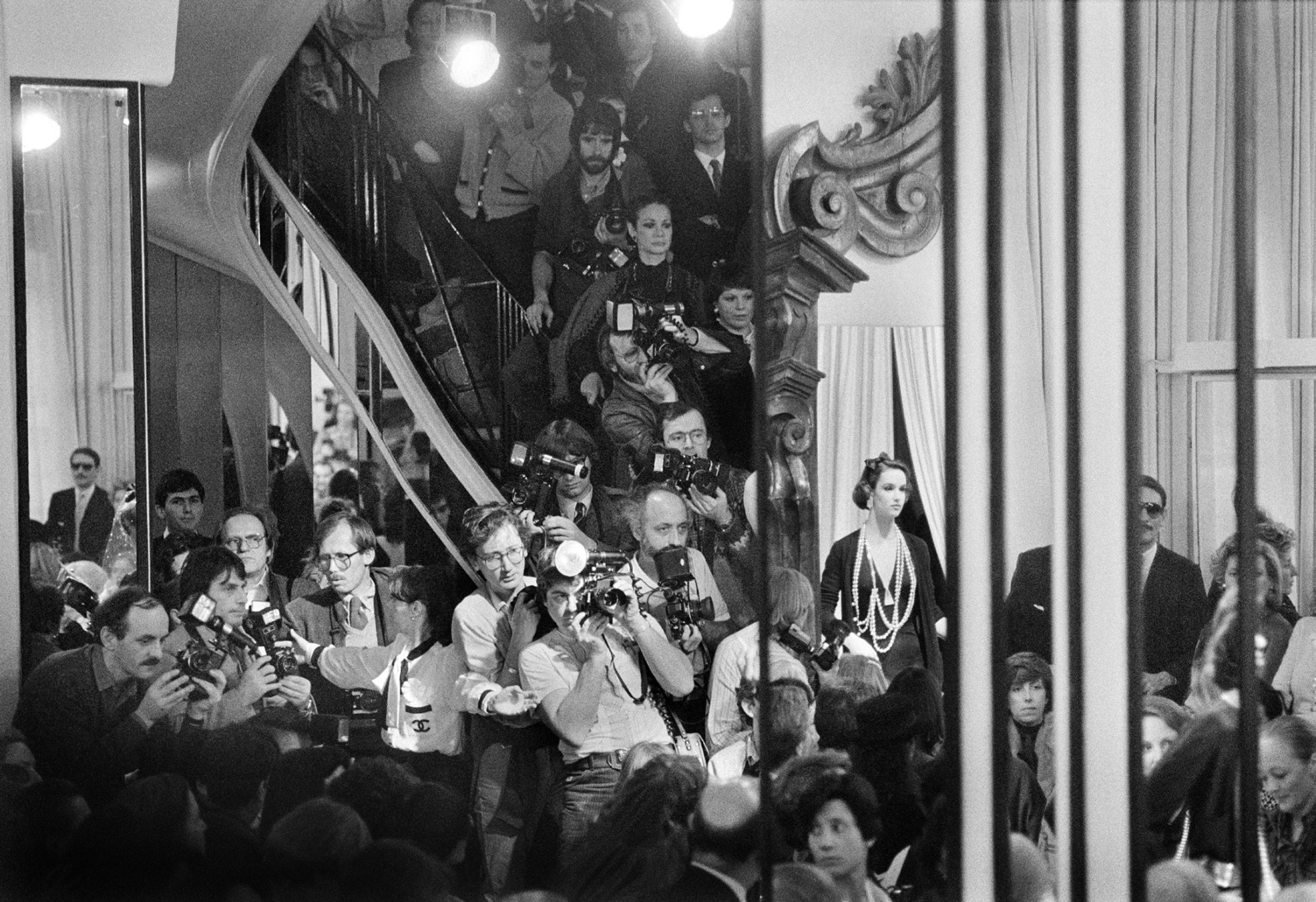
The look at Chloé was fresh and youthful, and the story was about the ready-to-wear labels giving the traditional fashion houses a run for their money. Gaby Aghion, Chloé’s founder was still at the house but Karl Lagerfeld was designing there throughout the 70s. I think the shows he put on for Chloé had a chicness, you could feel that there was an importance in the designs, subconsciously. They were exciting times, more so than it is now. His style also had humour and daring. He did dresses with showers and taps on and telephones. I think there was always a little bit of the child about him, even though his became this a grand master. That is always good for an artist.
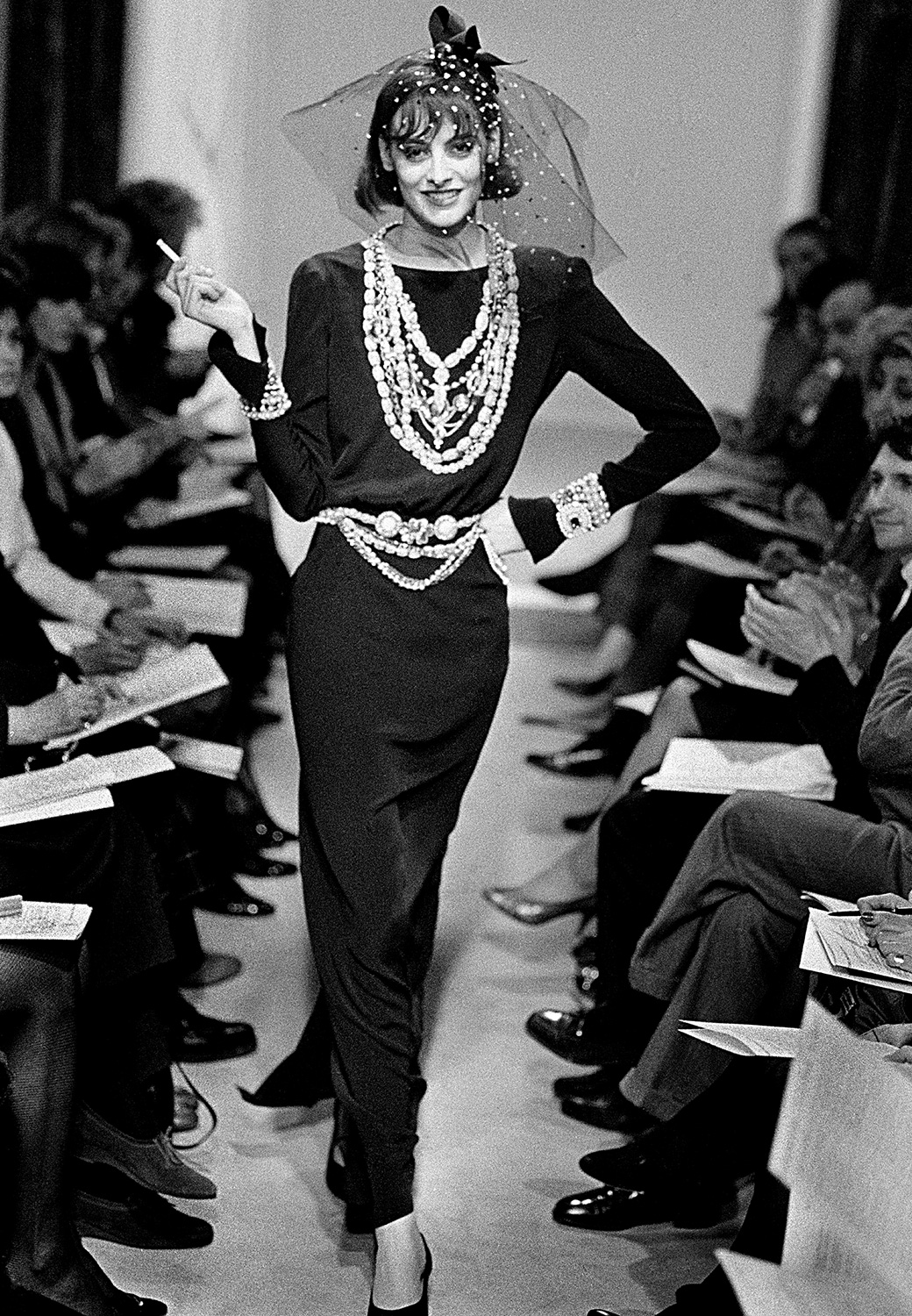
Even then, he was quick to hire models at the top of their profession and have them walk for him, like Marie Helvin, Jerry Hall and Pat Cleveland. To put this in perspective, when shows started there were house models who had fantastic bodies but not necessarily the best faces in the world. Then people like him brought in models like Pat Cleveland and Jerry Hall. It made a huge difference to the catwalk shows.
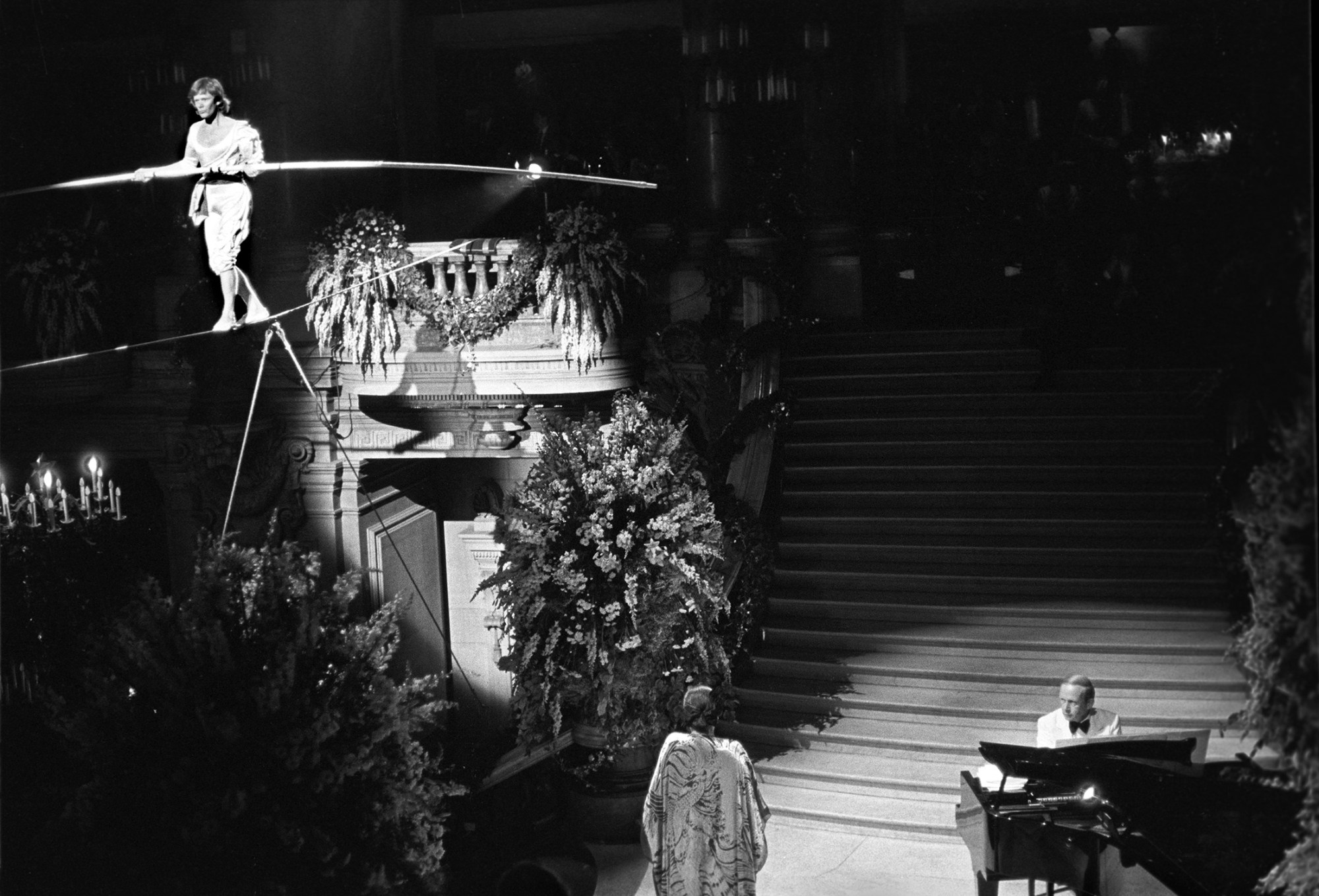
When he took over at Chanel, that was when he became very well-known. I remember it being in the Chanel house at 31 Rue Cambon for the first show. I remember knowing that it was important to get into that although I can’t remember who I was covering for. And I can remember it was very tense and I was not in the key position, but I was in a better one! I was able to turn my camera onto the other guys and the model was reflected in a mirror. It was a terrific show, I must say. I look at the photographs now and they are Chanel but they are modernised in a subtle way. He took the dullness out. It was a bit staid when Coco Chanel did it. This was a special show. He put his heart and soul into it and it showed. I think Yves Saint Laurent was always the top dog, but Lagerfeld was a force. He obviously knew his stitches, as it were, and he also knew what he was doing in the way he presented himself.
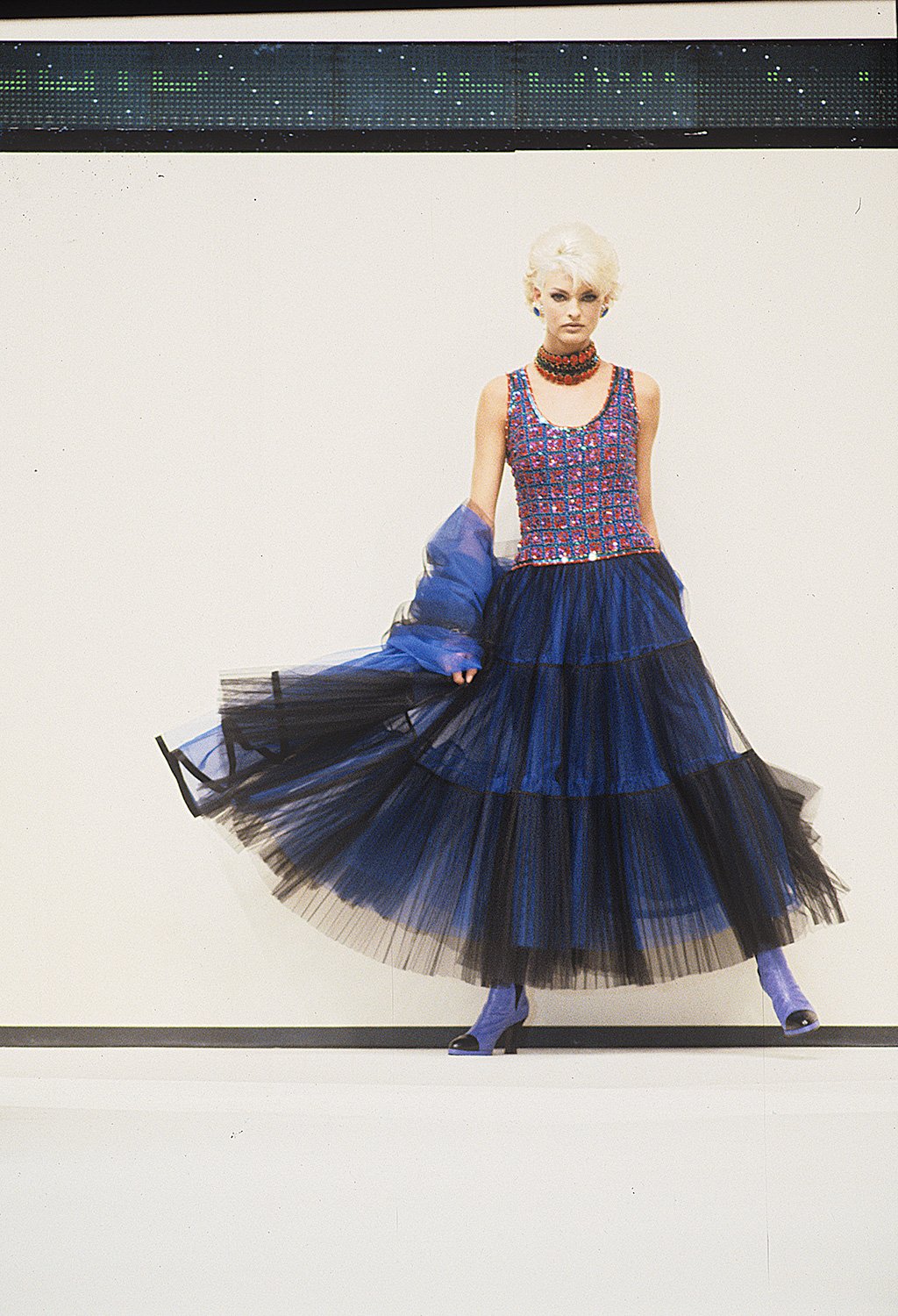
At Chanel in the 90s there was a light-hearted, happy spirit, wall-to-wall with supermodels and everyone seemed to be having fun. There was more energy. Suddenly, all the Fleet Street papers came to photograph the fashion shows because of the supermodels. They were featured much more within the press. Fashion shows became a thing. Newspapers and magazines were able to fill their pages with supermodels without paying expensive fees. One season the supermodels were styled with brightly-painted wigs and another with moon boots and tutus. Lagerfeld was having fun with his own brand as well, I remember one show particularly well because Helena Christensen came out wearing an inflatable mini crinoline.
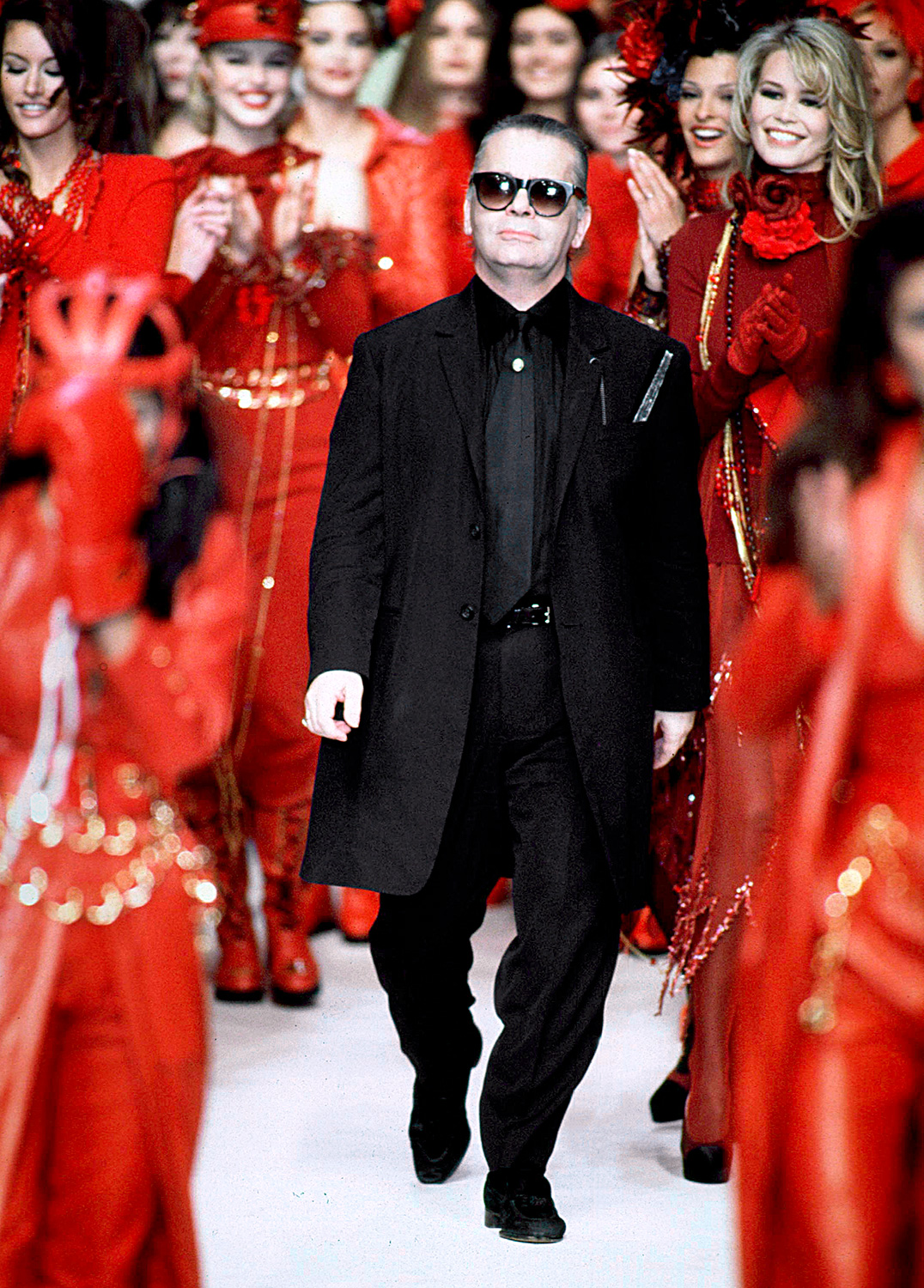
As a designer he was always ahead of the curve, always driving the trends, not just with his use of the supermodels but also for instance in the logos game and the prominence he would give to the accessories, which eventually became as much if not more important to my media clients as the clothes themselves. He is a figure in Paris who was mega, and I guess he was also intelligent and cultured.
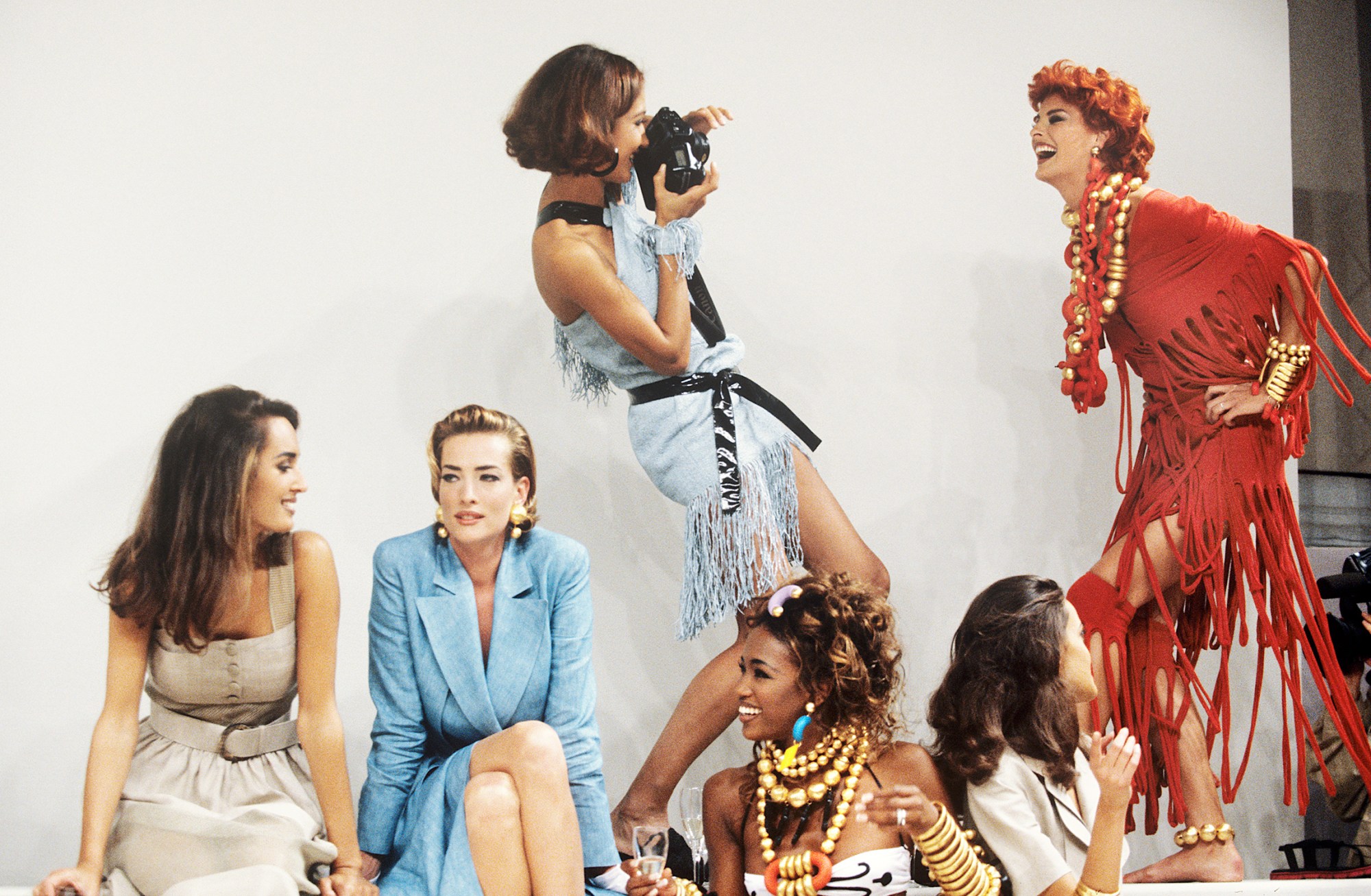
There was one show at The Ritz in the Chanel suite that was to commemorate the 25th anniversary of her death. The rooms were quite intimate and I really enjoyed photographing that, because these days, Chanel is unsurpassed in its extravagance, in its blockbuster catwalk shows. Karl Lagerfeld has repeatedly taken over the Grand Palais in the centre of Paris to fill it with one giant adventure after the other for the Chanel woman.
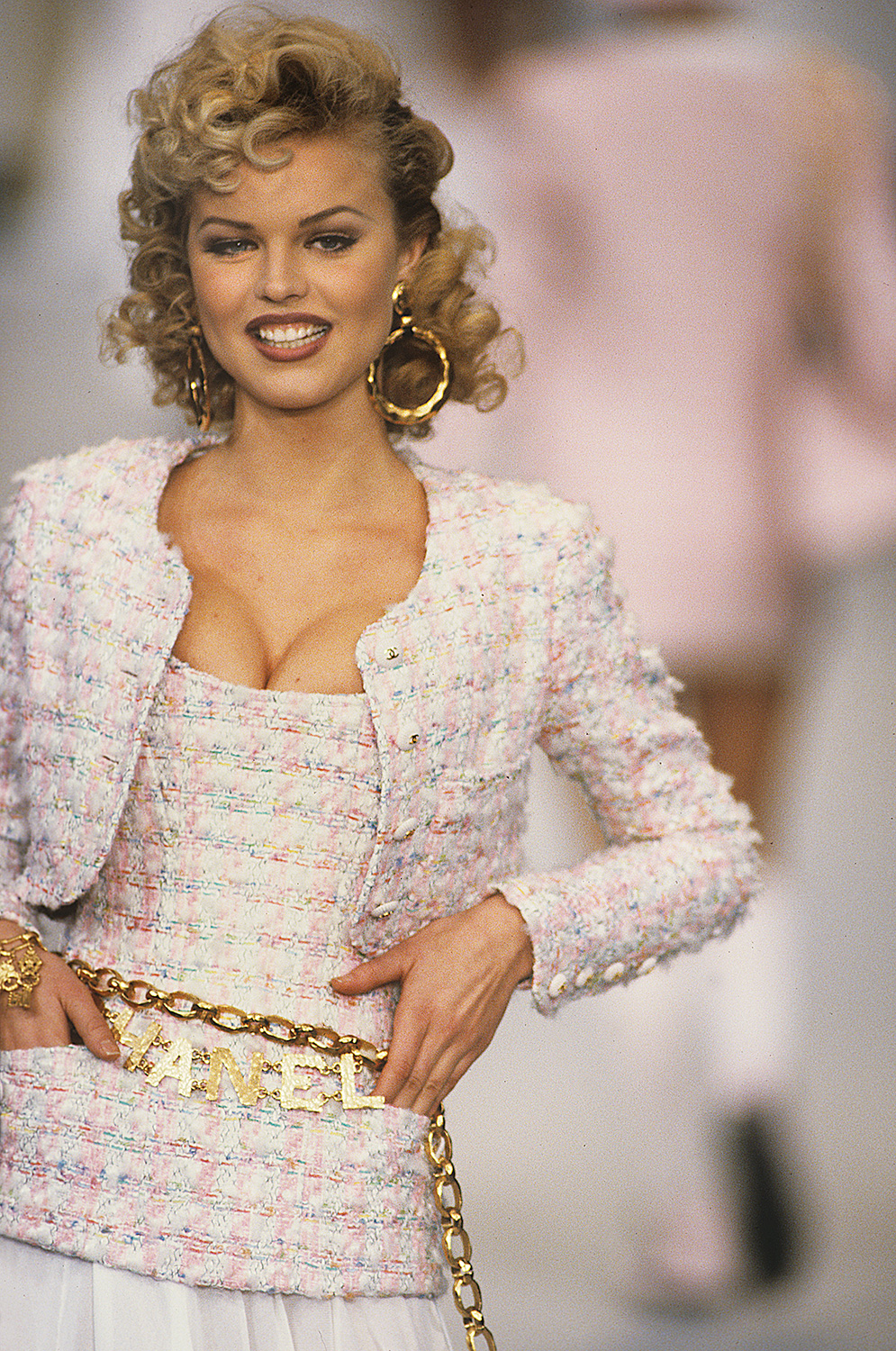
Even earlier than this Lagerfeld went out of his way to set the brand apart by thinking of the catwalk presentation as more than an elevated strip of shiny surface. I remember one particular couture show in the 80s held at the Opera Garnier in Paris, for the launch of their new Coco perfume. They had all the big girls of course: Ines de la Fressange, Kirat Young, Jerry Hall… but then following the show there was a big party with operatic arias and tightrope walkers.
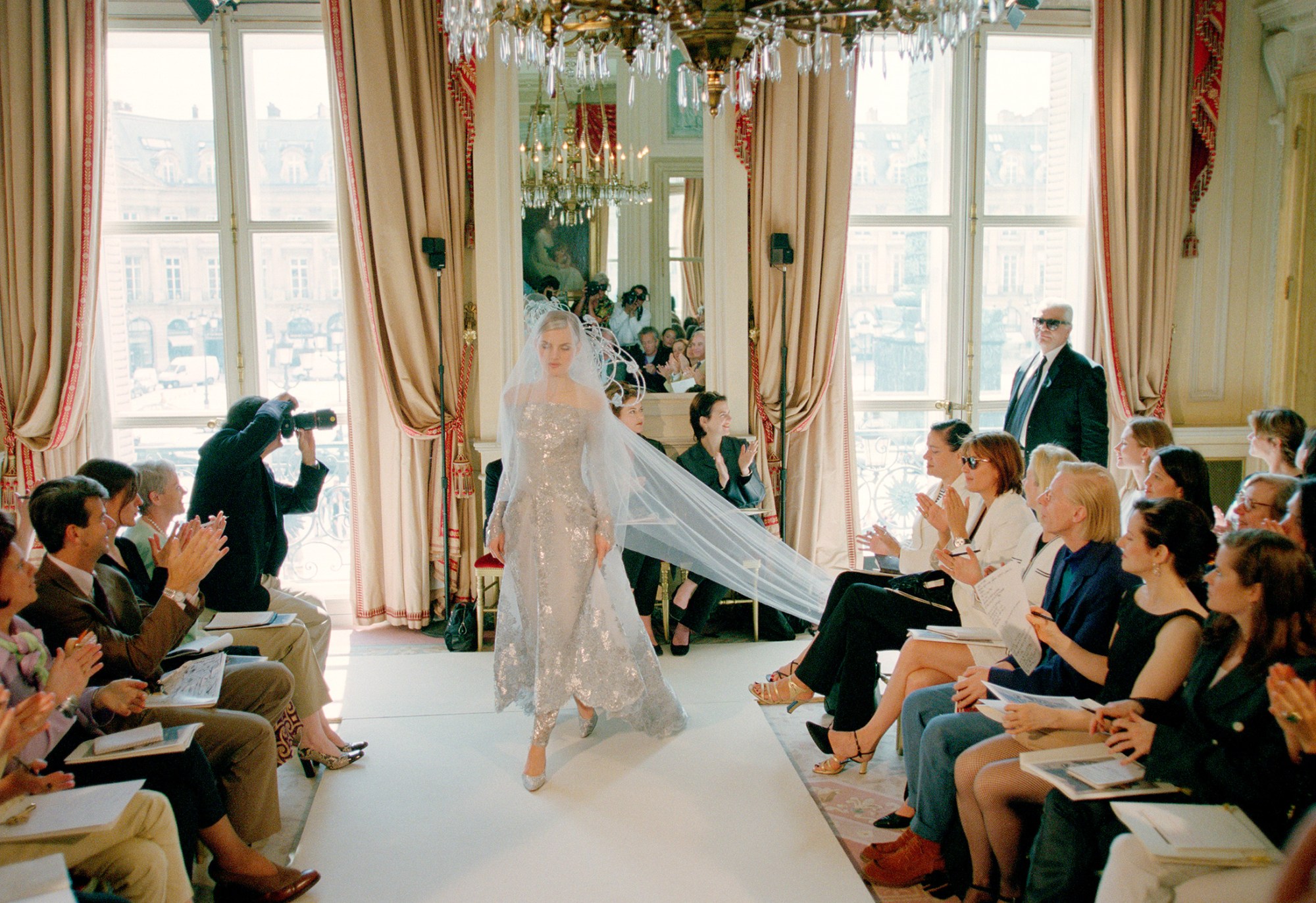
Personally, I prefer photographing intimate venues where you can see the clothes. There was one very irritating show where Karl wouldn’t let us bring anything to stand on. The only way to get a picture was to stand on something, it was on the inside of an aeroplane, I remember that being fraught with worry and irritation. We had to have secret things tucked in our clothes to stand on. There’s always a war that goes on between us and the houses, you know. I thought the rocket taking off was quite amazing, but it didn’t always make for good pictures.
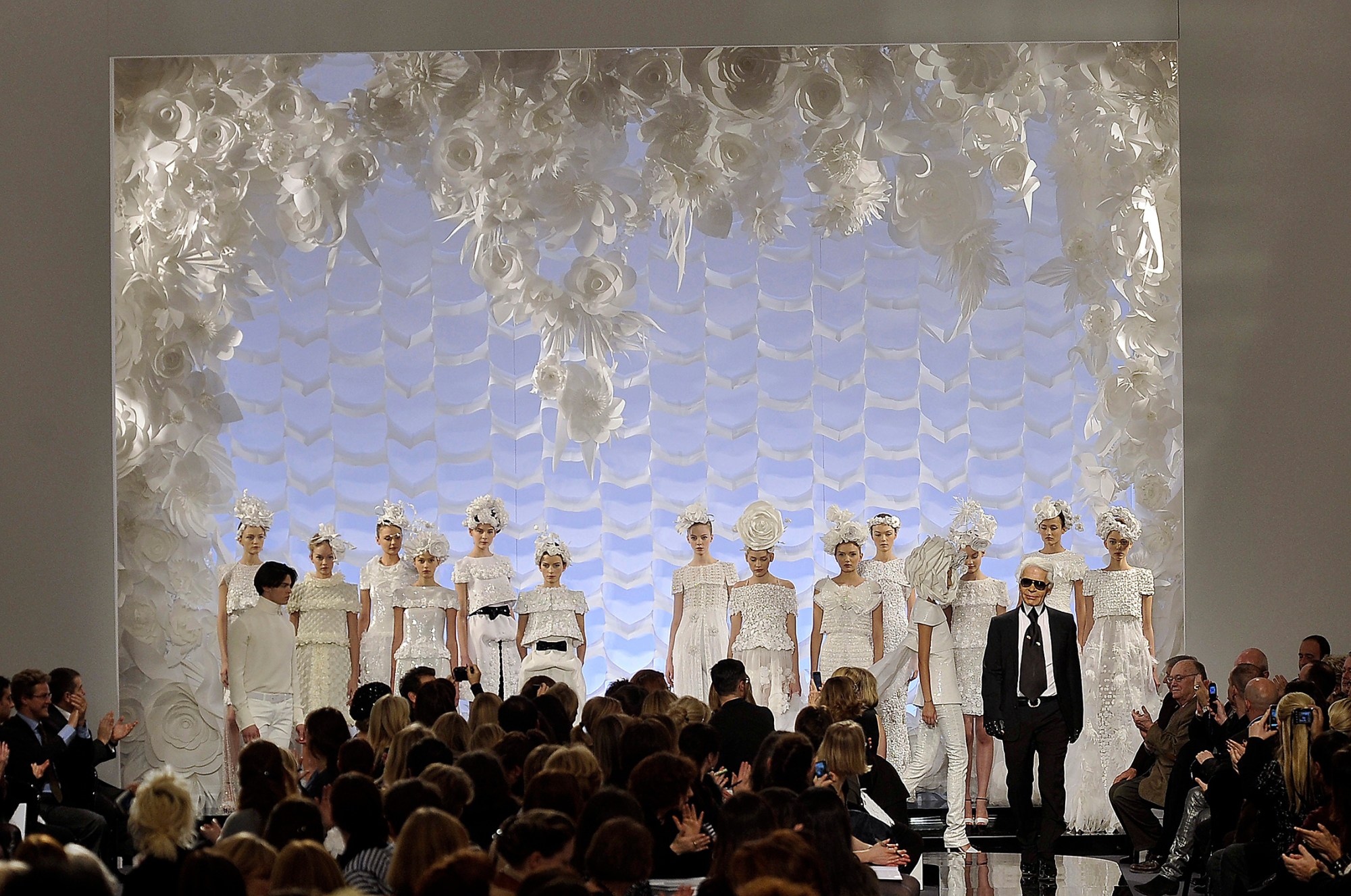
Everyone has a camera now and it has changed our world. There were 300 or 400 photographers at the show in the 80s. Sometimes now there are just four or five. The whole world is a photographer, which I embrace because it is quite wonderful.”
Credits
All photography courtesy Chris Moore/Catwalking
